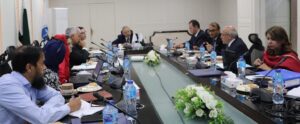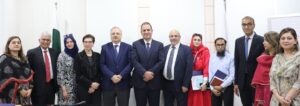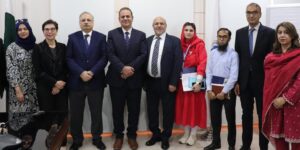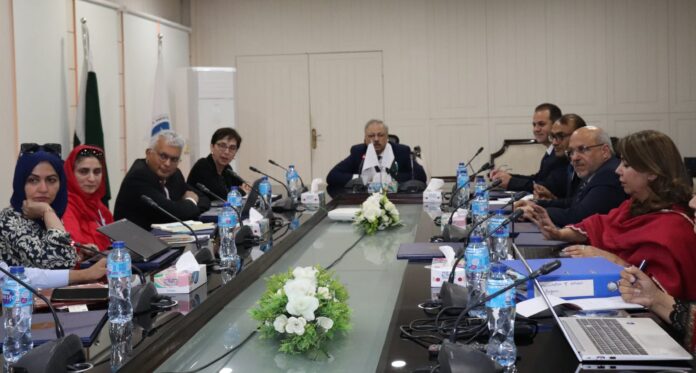- Advertisement -
ISLAMABAD, Apr 28 (APP):A high-level delegation from the World Health Organization (WHO) met with the President of the Pakistan Medical and Dental Council (PM&DC) on Monday, to enhance collaboration in aligning medical and public health education with Pakistan’s evolving Primary Health Care (PHC) needs.

Discussions centered on improving primary health care services, revising medical curricula, and preparing future healthcare professionals to deliver community-centered, comprehensive care.
The WHO delegation highlighted the critical need for a health workforce capable of addressing non-communicable diseases, maternal and child health, mental health challenges, and emerging health emergencies.

“Our shared goal is to create a responsive, equitable, and sustainable healthcare system by strengthening the foundation of medical education,” said Prof Dr Rizwan Taj, President of PM&DC. “We value WHO’s technical expertise and continued support in this vital endeavor.”
The visiting WHO delegation included Ravaghi Hamid (Regional Advisor), Mataria Awad (Director), Gedik Fetheya Gulin (Coordinator), Dr Mohsin Raza (Consultant, Health Financing), Syed Shamsuzzoha Babar (Unit Head), Dr Naveed Asghar (National Professional Officer, Health System), Ms Tahira Ali (Community Engagement Officer), and Dr Samia Latif (Consultant, Communicable Disease Control).

Prof Dr Rizwan Taj outlined PM&DC’s initiatives, including directives to all affiliated medical and dental colleges to establish outreach centers through teaching hospitals or by utilizing Basic Health Units (BHUs) and Rural Health Centers (RHCs).
This move seeks to provide practical training for students, enhance community health services, and improve public health awareness, particularly in remote and suburban areas.
He emphasized that integrating Primary Health Care into undergraduate medical education is a key focus for PM&DC, aligning with WHO standards for doctor-patient ratios and faculty development.
Dr Taj also shared that PM&DC has introduced a curriculum comprising 1,700 hours for medical and allied health education, with 75 hours specifically dedicated to Family Medicine.
“To date, 44 affiliated colleges have responded positively to our call for integrating Family Health Care and Primary Health Care modules into their programs,” Dr Taj noted.
Additionally, plans are underway to further incorporate Public Health and Family Medicine at the postgraduate level, reflecting PM&DC’s commitment to comprehensive healthcare education reform.
Prof Dr Taj also announced the upcoming launch of Continuing Professional Development (CPD) and Continuing Medical Education (CME) programs. These initiatives will link professional re-validation to ongoing education, ensuring doctors maintain contemporary skills and knowledge throughout their careers.
The meeting concluded with a shared commitments to continued collaboration between WHO and PM&DC to bolster Pakistan’s primary healthcare infrastructure and medical education systems.

